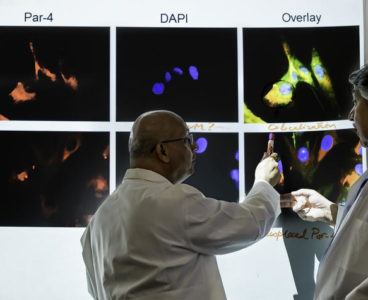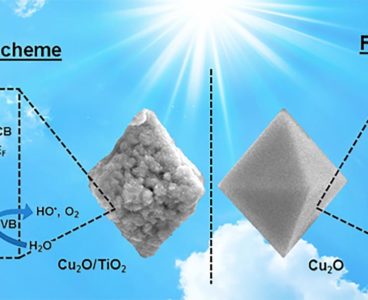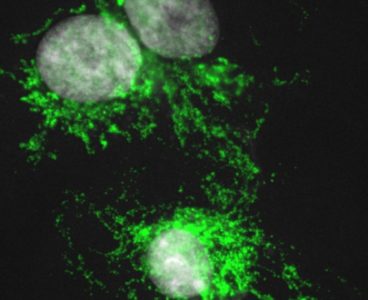
New Study Discovers ‘Killer Peptide’ That Helps Eliminate Resistant Cancer Cells
A new study by University of Kentucky Markey Cancer Center researchers shows that when therapy-sensitive cancer cells die, they release a “killer peptide” that can eliminate therapy-resistant cells. Tumor relapse is a common problem following cancer treatment, because primary tumor cells often contain therapy-resistance cancer cells that continue to proliferate after the therapy-sensitive cells have been eliminated.…
Researchers Develop Catalyst That Mimics the Z-Scheme of Photosynthesis
A team of chemists from the University of Kentucky and the Institute of Physics Research of Mar del Plata in Argentina has just reported a way to trigger a fundamental step in the mechanism of photosynthesis, providing a process with great potential for developing new technology to reduce carbon dioxide levels. Led by Marcelo Guzman,…
Researchers Identify Macrophages as Key Factor for Regeneration in Mammals
A team of University of Kentucky researchers has discovered that macrophages, a type of immune cell that clears debris at injury sites during normal wound healing and helps produce scar tissue, are required for complex tissue regeneration in mammals. Their findings, published today in eLife, shed light on how immune cells might be harnessed to someday help stimulate…



